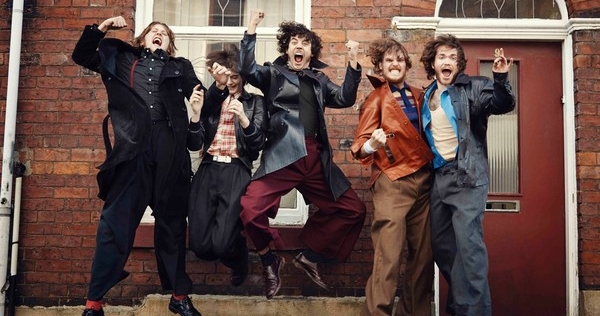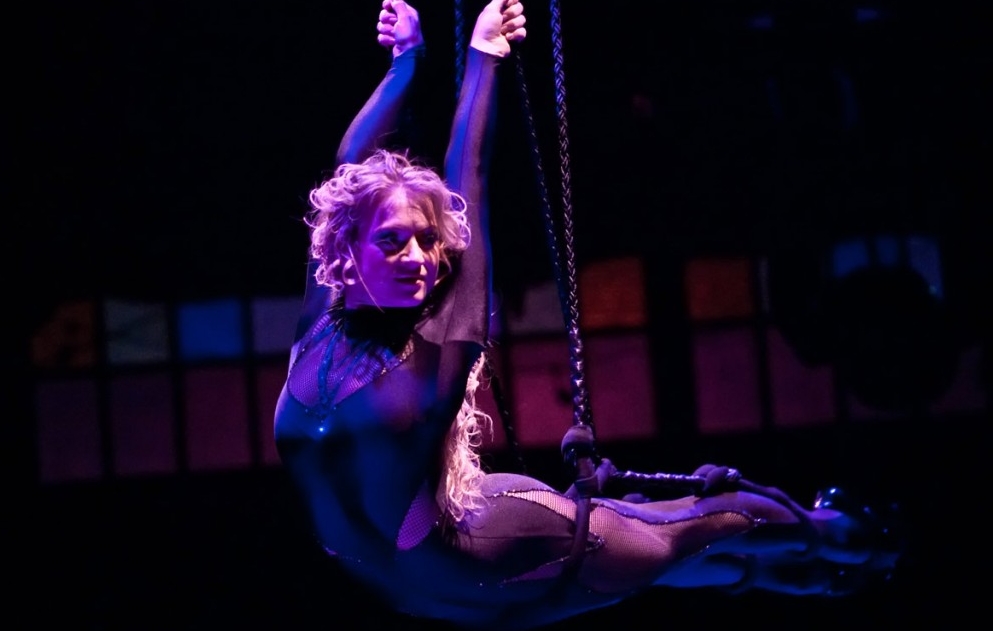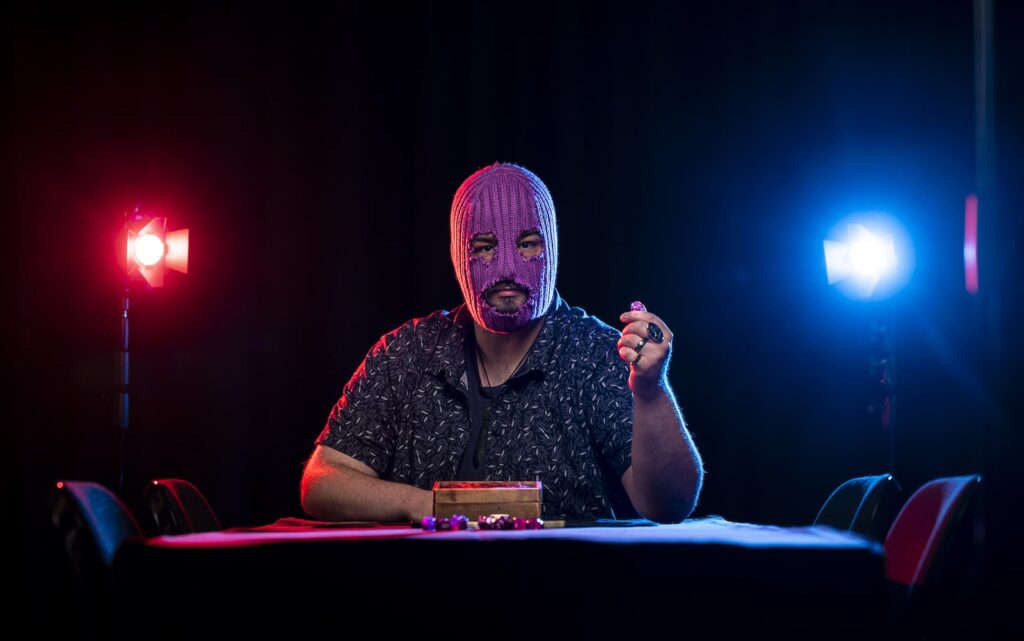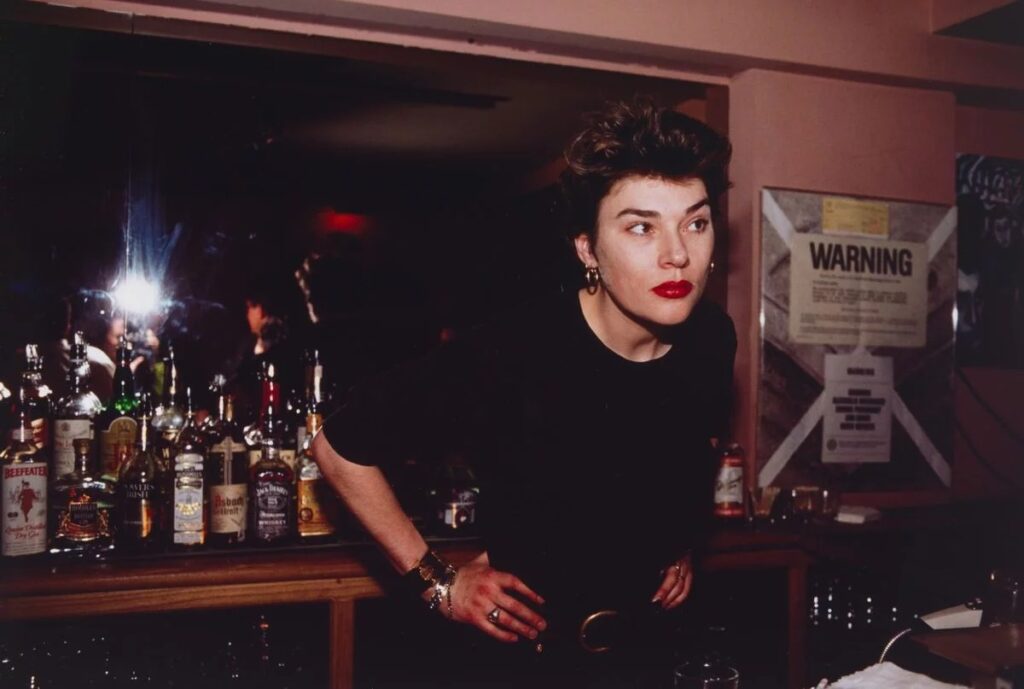Though clearly a labour of love for Constantine, who was herself present for the genre’s dwindling heyday, there was also an element of rescue to her undertaking. Everywhere she turned Constantine found herself assailed by stories and representations of the era that had little in common with the scene she so fondly recalled.
“This is going to sound really arrogant,” she laughs. “But there was a lot of crap out there. There was a lot of horrible commercialism tried out on this scene. Especially in the mid-’70s, where they were trying to create these groups which were not northern soul groups because they were actually British. So there was a lot of awful, shameless self-promotion going on with these horrible old men trying to sell these acts that they’d ‘discovered’. And all these compilations were coming out that were just shit, with all of this awful imagery. I used to think, God, I remember how wonderful it was, and how amazing all these youths were on the dance floor, and yet all I’m seeing is fat, bald old men with pictures of themselves everywhere telling everyone ‘I used to be a pop DJ.’ And every time you’d flick on the TV there’d be some documentary with one of these old horrors sitting there, and so the younger generation were left thinking, God, this northern soul is just an old fogey thing. So I wanted to look at what it really felt like.”
Every musical genre has its unique quirks and mannerisms, but northern soul really is something special. Music that had to be imported in order to be legitimate, that encouraged searching record stores far and wide for American soul music unknown or forgotten. There is something of a quest to the genre, exploring a finite stream of sound and bringing it back to the dance floor. As a result compiling the soundtrack was of crucial importance, yet this paled in comparison to the years of effort that went into writing the film.
“We had a riot with the soundtrack. It was like playing with all of your favourite toys. There are some absolute clear favourites that couldn’t be ignored, and they had to go in of course. We did struggle with the rights to two records that were owned by the James Brown estate, so we couldn’t pick those up in the end. I think the main difficulty for me was the scriptwriting, because obviously I’m not a writer. That took an awful long time and I had to get a lot of advice, get a lot of people to give me feedback, and that took years and years.”
In a sense, Constantine has been slowly shaping this story for much longer still. Her love of the northern soul culture began early, with the first-time director cycling between gigs, growing more and more enamoured with the tail-end of this vibrant, fleeting scene. It most certainly played a significant role in the photographic career for which she is best known, capturing the fashion and habits of these mod-cutaway crowds.
It also meant that Constantine could bring a strong sense of accuracy to the film, although she is quick to establish Northern Soul as foremost a feature film, and not some strident historical charter. Similarly the casting of the film was of paramount importance, and her decision to lead with emerging actor Elliot James Langridge and newcomer Josh Whitehouse alongside recognisable names, like Steve Coogan, allowed “them to just be the characters without the baggage of being recognised as actors first.”
Indeed, Constantine treated herself in an equally aspirant manner. “I watched a lot of films, read a lot of scripts, and tried to appreciate how do you make something in a genre like this. How do you make it authentic, how do you stay genuine to a true story? How do you not shoehorn it into some perfect three-act structure with a single clear protagonist, you know? So once the script was where I wanted it, the directing side of things was more transporting the kids forty years back in time, behaving like they would have back in the day. I think the film turned out great. It’s exactly how I wanted it.”
Constantine be proud; the film is not some nostalgic homage, but a compelling story set in a time and place that many audiences will be entirely unfamiliar with. It is a brief dive into another world, that just happens to be one that existed not so long ago. There is more on the horizon for Elaine Constantine in the film world – another exploration of the UK music scene – although she is reluctant to provide any details. As stands, then, Northern Soul is not only a testament to an enduring genre, but to a director whose talent is still ascending. And what’s more she’s still remarkably chipper even at the end.
BY ADAM NORRIS







